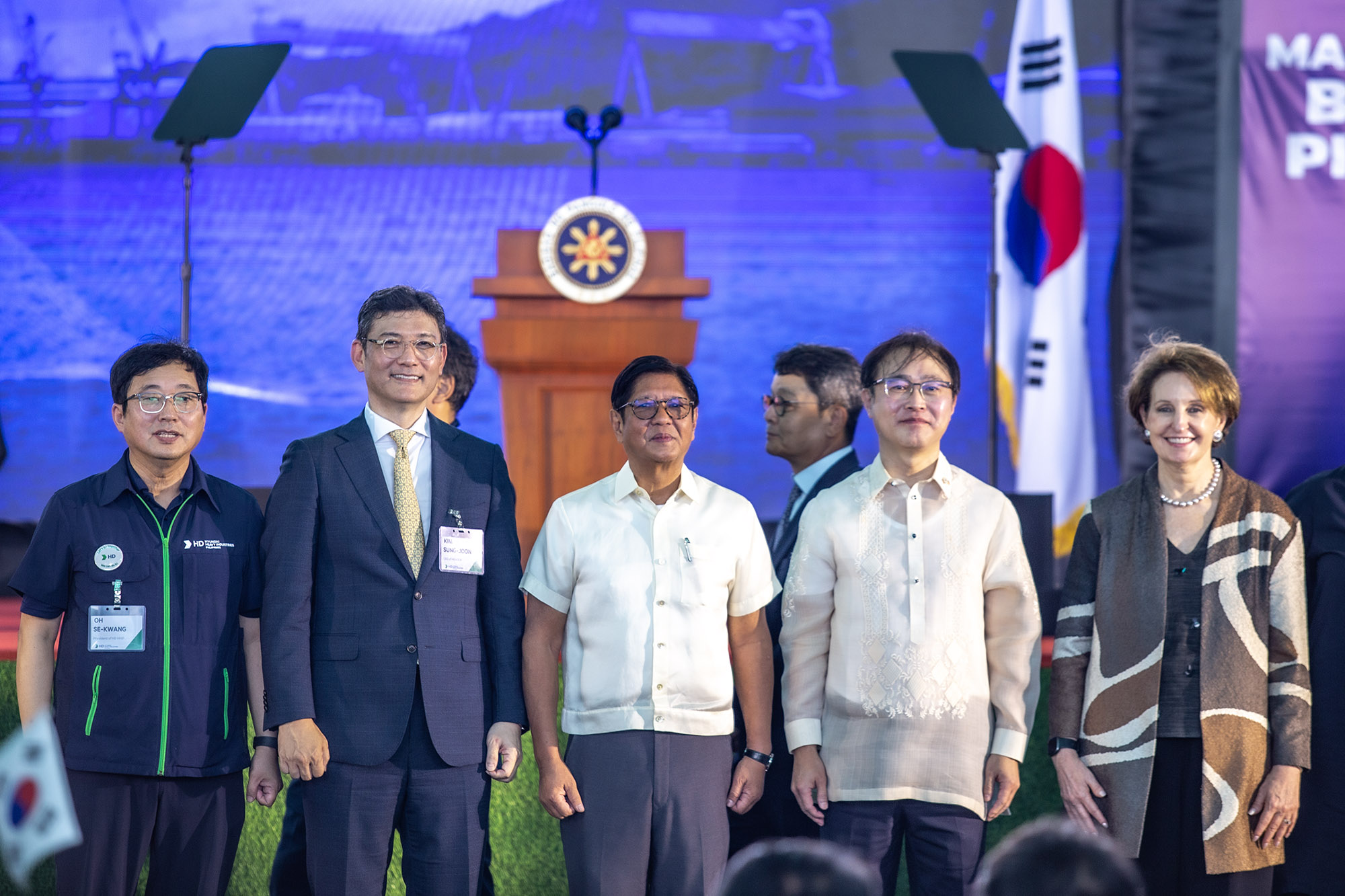
▶ HD Hyundai holds its first steel-cutting ceremony in the Philippines, attended by the president of the Philippines and the U.S. ambassador
▶ Targeting the bulk carrier and tanker markets, the shipyard aims to play a pivotal role in regaining the market share from China
▶ Will position as a strategic hub for the MASGA initiative, maximizing efficiency through collaboration with the company’s global bases
▶ “An optimal partner with abundant natural resources, skilled talent, and strong government support” — “Strengthening global competitiveness in shipbuilding orders”
HD Korea Shipbuilding & Offshore Engineering (HD KSOE) builds on its overseas shipyard success in Vietnam, extending its global presence to the Philippines.
HD KSOE, the intermediary holding company of HD Hyundai’s shipbuilding and offshore engineering division, announced on Tuesday, September 2, that it held a steel-cutting ceremony at HD Hyundai Philippines Shipyard (HD Hyundai Philippines) in Subic Bay, the Philippines, marking the commencement of construction of a 115,000-ton petrochemical carrier.
This vessel is the first to be built by HD Hyundai Philippines and serves as the lead ship in a series of four petrochemical carriers ordered by an Asia-based shipping company in December last year. The steel-cutting ceremony marked the beginning of the shipbuilding process, symbolized by the cutting of the first steel plate.
The ceremony was attended by Ferdinand Marcos Jr., President of the Philippines; MaryKay Carlson, U.S. Ambassador to the Philippines; Lee Sang-hwa, Korean Ambassador to the Philippines; and Kim Sung-joon, CEO of HD KSOE, who joined to celebrate the commencement of HD Hyundai Philippines’ first vessel construction.
In May last year, HD KSOE signed a lease agreement with Cerberus Capital for part of the Subic shipyard site, officially launching the facility as the company’s second overseas shipyard.
Since establishing HD Hyundai Vietnam Shipbuilding in Khanh Hoa Province in 1996, HD KSOE has expanded it into Southeast Asia’s largest shipyard, capable of constructing over 10 vessels each year.
With domestic shipyards facing challenges in the bulk carrier and tanker markets due to intensifying competition from China, HD KSOE expects HD Hyundai Philippines to play a pivotal role in restoring competitiveness in this segment and reclaiming lost market share.
HD Hyundai also aims to leverage HD Hyundai Philippines to strengthen economic and security cooperation among Korea, the United States, and the Philippines. Previously, in 2022, HD Hyundai Heavy Industries, a subsidiary of HD KSOE, established a logistics support center in the Philippines to provide MRO (maintenance, repair, and overhaul) services for frigates, patrol vessels, and other naval ships built and delivered to the Philippine government.
Building on this experience and technological expertise, HD KSOE plans to establish a cooperative framework with the Philippine government and position HD Hyundai Philippines as another strategic hub for the MASGA (Make American Shipbuilding Great Again) project.
The company also expects to maximize efficiency through collaboration with its key overseas bases. Strategically located near HD Hyundai Vietnam Shipbuilding, HD Hyundai Vina (tentative name), and an investment entity in Singapore (planned), HD Hyundai Philippines will be able to leverage a shared supply chain for blocks and ship tanks, as well as ensure integrated workforce operations.
On August 27, HD Hyundai also announced plans to establish an investment entity in Singapore to oversee its overseas operations, including the management of production bases such as HD Hyundai Vietnam Shipbuilding, HD Hyundai Philippines, and HD Hyundai Vina.
HD KSOE CEO Kim Sung-joon stated, “With strong government support, abundant natural advantages, and highly skilled human resources, the Philippines is emerging as a new shipbuilding powerhouse. By leveraging HD Hyundai Philippines, we will further strengthen our global competitiveness in securing new orders.”
Earlier, on Monday, August 25, HD Hyundai signed a Memorandum of Understanding (MOU) with Cerberus Capital and Korea Development Bank to establish the Korea-U.S. Maritime Investment Partnership, marking the first collaboration since the launch of the MASGA initiative.